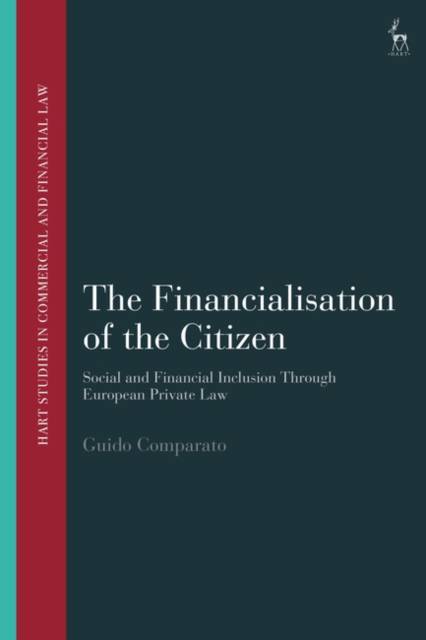
- Afhalen na 1 uur in een winkel met voorraad
- Gratis thuislevering in België vanaf € 30
- Ruim aanbod met 7 miljoen producten
- Afhalen na 1 uur in een winkel met voorraad
- Gratis thuislevering in België vanaf € 30
- Ruim aanbod met 7 miljoen producten
The Financialisation of the Citizen
Social and Financial Inclusion Through European Private Law
Guido ComparatoOmschrijving
This book discusses the role of private law as an instrument to produce financial and social inclusion in a context characterised by the redefinition of the role of the State and by the financialisation of society. By depicting the political and economic developments behind the popular idea of financial inclusion, the book deconstructs that notion, illustrating the existence and interaction of different discourses surrounding it. The book further traces the evolution of inclusion, specifically in the European context, and thus moves on to analyse the legal rules which are most relevant for the purposes of bringing about the financialisation of the citizen. Hence, the author focuses more on four highly topical areas: access to a bank account, access to credit, over indebtedness, and financial education.
Adopting a critical and inter-disciplinary approach, The Financialisation of the Citizen takes the reader through a top-down journey starting from the political economy of financialisation, to the law and policy of the European Union, and finally to more specific private law rules.Specificaties
Betrokkenen
- Auteur(s):
- Uitgeverij:
Inhoud
- Aantal bladzijden:
- 232
- Taal:
- Engels
- Reeks:
Eigenschappen
- Productcode (EAN):
- 9781509919222
- Verschijningsdatum:
- 23/08/2018
- Uitvoering:
- Hardcover
- Formaat:
- Genaaid
- Afmetingen:
- 160 mm x 236 mm
- Gewicht:
- 476 g

Alleen bij Standaard Boekhandel
Beoordelingen
We publiceren alleen reviews die voldoen aan de voorwaarden voor reviews. Bekijk onze voorwaarden voor reviews.







